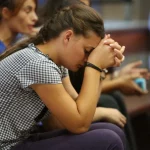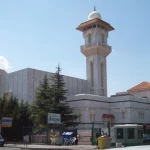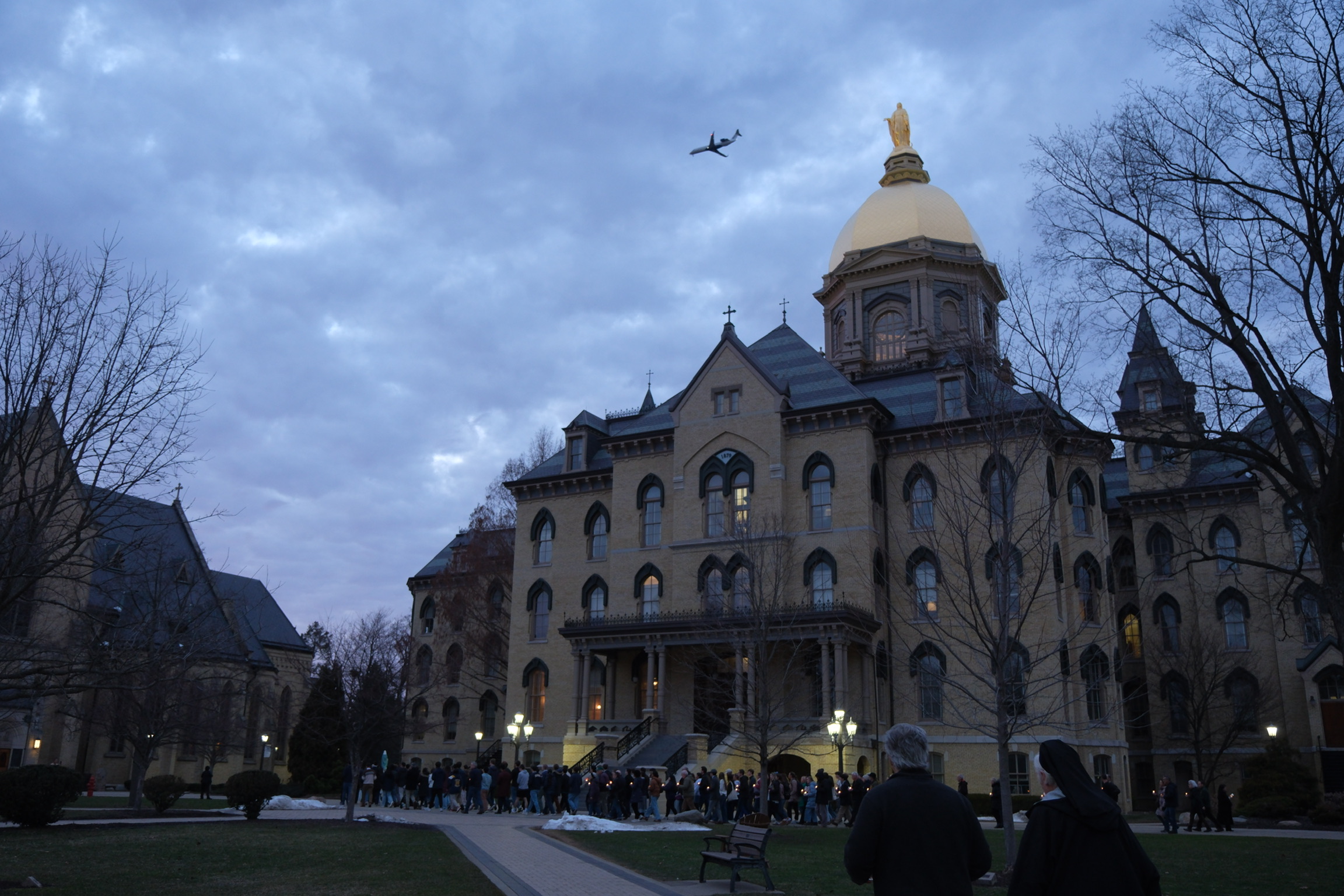A family of religious Jews walks at the beginning of Armenian Quarter Street, the entry point to the Armenian Quarter of Jerusalem in April 2024. Behind them stands the complex of the Tower of David Museum. / Credit: Marinella Bandini
Jerusalem, May 1, 2024 / 13:05 pm (CNA).
During the Jewish Passover (Pesach) in late April, an unprecedented initiative took place in Jerusalem.
On the eve of the festivities, anticipating the arrival of numerous Jewish worshippers to fulfill religious precepts, several posters and pamphlets appeared in the streets of the Old City calling on the public to avoid offensive behavior and harassment toward Christians and non-Jews.
“We must together maintain ‘Derech Eretz’ (‘proper behavior precedes the Torah’) in regard to the respect of mankind, to non-Jews and those of a different religion, especially during Passover and throughout the entire year. We must prevent and prevent others from spitting in the direction of others who are not Jewish,” a short excerpt from the poster reads.
A religious Jewish family/group at the entrance of the Christian souk, from Jaffa Gate, in April 2024. Many Jews use this street to go to the Western Wall. Credit: Marinella Bandini
According to local websites, the initiative was promoted by Ahrale Friedman, a resident of the ultra-Orthodox Ramat Shlomo neighborhood located in the newer part of Jerusalem. A source with knowledge of the community but who is unauthorized to speak for it told CNA that the campaign is likely the effort of a broader Jewish organization with connections in the Orthodox world. Regardless, it is the first initiative of its kind.
Several highly publicized incidents involving ultra-Orthodox Jews harassing Christians in the Old City of Jerusalem have been reported. Among the most “hot” areas for this behavior are the Via Dolorosa, the Armenian quarter, and Mount Zion.
In the last year, a significant public opinion movement both locally and internationally has brought to light these types of incidents, including the controversial practice of spitting at Christians or their holy places as a sign of contempt.
The incidents have decreased in the last few months because of the war — due to the absence of Christian pilgrims and the reduced presence of Jews in the Old City in the early months of the conflict — but the phenomenon has never disappeared.
Just a couple of months ago, the attack on Benedictine Abbot Nikodemus Schnabel, captured live, caused a stir. And in recent days, a video filmed in the Armenian quarter has been circulating in which blasphemies against Jesus in Hebrew can be clearly heard.
On posters and flyers, one can find quotes on the matter from leading rabbinical authorities who have condemned such actions, such as the elder rabbi of the Council of Torah, Rabbi Meir Zvi Bergman.
“There is a new thing today that we should protest with all our might: spitting out on the street, and we are against it. It is blasphemy,” he said.
The Sephardic chief rabbi of Jerusalem, Shlomo Amer, is also quoted as saying: “This thing is absolutely forbidden, and it is also a blasphemy of God.”
A quote from Rabbi Shmuel Eliyahu, member of the Chief Rabbinate Council of Israel, is also present: “It’s so opposite of Judaism. I don’t know where these spits came from. It’s not ours.”
Yisca Harani, an Israeli lecturer, adviser, researcher, and guide in the field of Christian history who is involved in interfaith activities, told CNA that such an initiative against the behavior “is absolutely beneficial.”
Yisca Harani at a conference in Ein Karem on Dec. 20, 2019, organized by the local Jewish community in collaboration with the Franciscan convent of St. John. Credit: Nadim Asfour/Courtesy of Custody of the Holy Land
Harani herself is involved in reporting cases of violence against Christians. In June 2023 she launched the Religious Freedom Data Center, whose aim is “to document all such incidents, bring them to the attention of the relevant institutions, and demand they use the means and measures at their disposal to redress them.” She herself saw some people hanging posters, and she asked the volunteers of her association to distribute these flyers.
She explained that “all the rabbis quoted are very famous. The names of some very radical and very conservative rabbis were taken. It means that if they say not to spit, their audience will have to listen to it very carefully.”
Harani is convinced that reporting to the authorities is one of the paths to take.
“Only if [the attackers] are going to be treated very very harshly will we see a change,” she said. On the other hand, she believes that the “educational way” is the only one that can guarantee long-term results.
“Posters are a very good example of this,” she said.
An Orthodox Jew walks past the entrance of the Armenian Patriarchate of Jerusalem, one of the places most affected by anti-Christian violence (both physical and verbal) in April 2024. Credit: Marinella Bandini
The posters clearly state that aggressive behavior toward Christians “will not benefit us and may even harm the global support for the war.” Furthermore, it is said that there were “wicked people” who have used videos in which young people were seen spitting “as an excuse to attack Jews abroad and slander the country and the people.”
“Even without the above-mentioned things,” the posters say, “we must be careful about this and preserve the honor of our Torah as the sons of Abraham our father, peace be upon him, who also received idolaters in his tent and taught us the Kiddush of God and the most distant ones even in days of peace and tranquility in our streets.”















